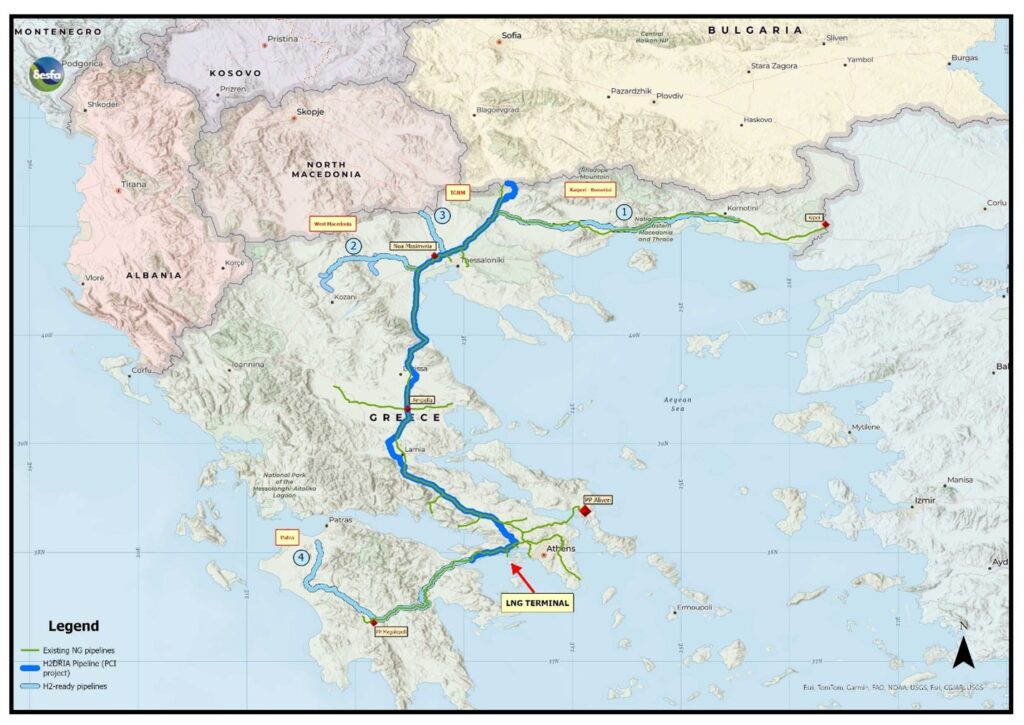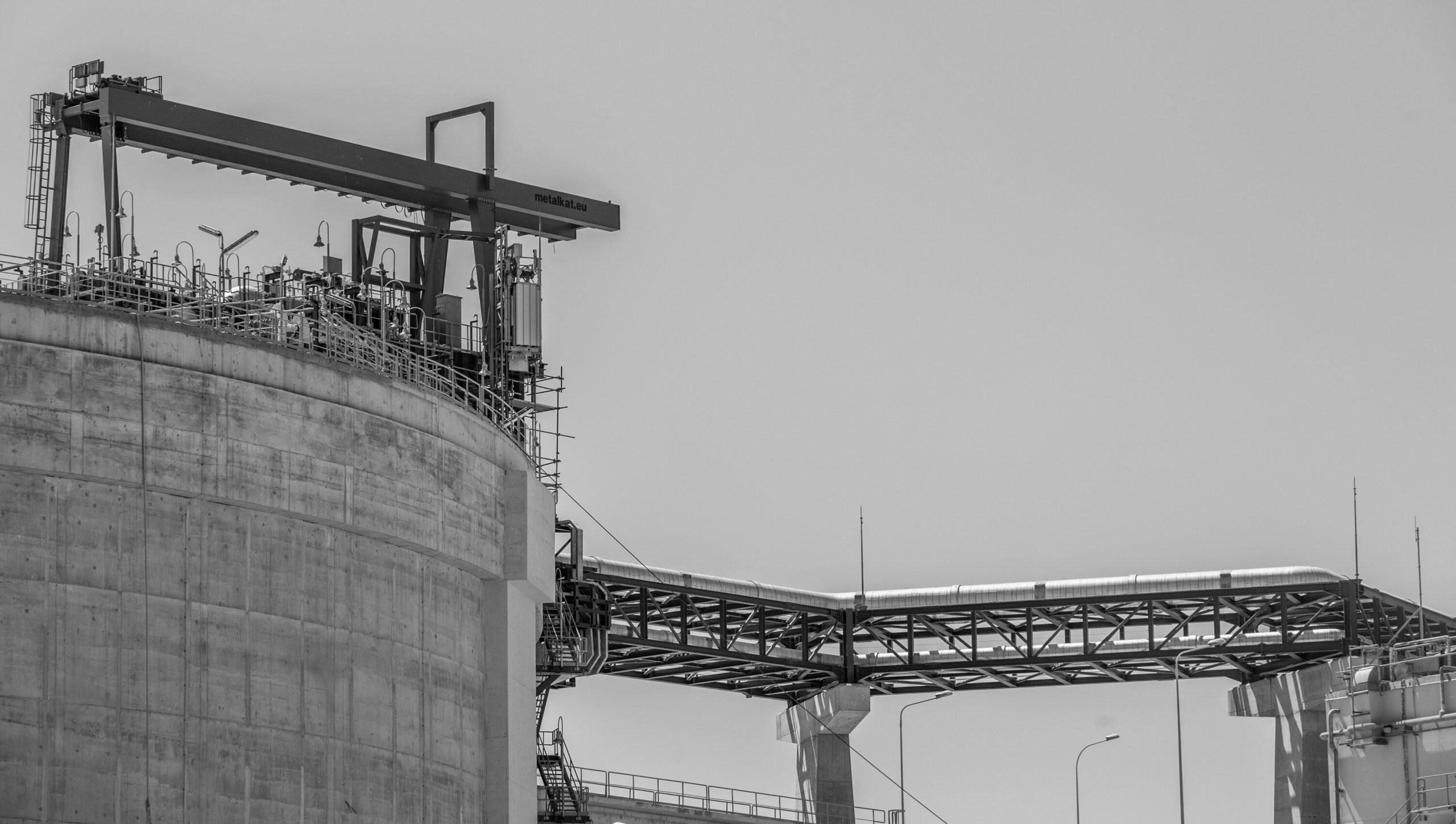Hydrogen has been identified as one of the most important fuels for Europe’s energy transition by the European Commission and market participants are already recognizing its transformative potential in shaping a sustainable future. With a strategic focus on diversifying energy sources and reducing carbon emissions, Greece can leverage the growing hydrogen sector as a key driver of its sustainable development.
At DESFA, we are steadfastly committed to support energy transition, decarbonization, and the widespread adoption of renewable gases in Greece and Southeast Europe. Through strategic investments in infrastructure and technology, we are actively working to integrate renewable gases and most importantly hydrogen into our pipeline network, fostering a cleaner and more resilient energy ecosystem.
In this regard, we have a strong presence in the hydrogen sector both on a national and European level:
- We participate in all EU-initiatives and groups related to hydrogen transportation. We are a founding member of the European Network of Network Operators of Hydrogen – ENNOH and other hydrogen associations such as Hydrogen Europe.
- We are in close cooperation with other European TSOs from Southeast Europe, Italy and Germany for the development of hydrogen infrastructure, in line with the EU Hydrogen Backbone initiative, that will be able to transport hydrogen from Greece to Central Europe.
- We are expanding our approach to include hydrogen and other renewable gases in our Ten-Year Development Plan, following a structured roadmap for the development of the hydrogen network in Greece. In this regard, all new natural gas infrastructure in Greece is developed by DESFA as hydrogen-ready. Namely:
1. Karperi-Komotini HPP
2. Western Macedonia HPP
3. Patras HPP
4. Interconnector Greece – Northern Macedonia (IGNM)

To further assess hydrogen market dynamics in Greece and Bulgaria, DESFA along with the Bulgarian Gas Transmission System Operator – Bulgartransgaz, have launched a non-binding Hydrogen Call of Interest in late 2024. This main aim of the Call was to gather insights from industry stakeholders and market participants for the formation of the Greek Hydrogen Backbone and drive collaborative initiatives in advancing country’s hydrogen ecosystem.
The key results of DESFA’s non-binding Hydrogen Call of Interest for Greece show that out of 33 projects submitted to the call:
- 25 projects concern the production of renewable hydrogen
- 4 projects concern the consumption of all types of hydrogen
- 4 projects concern trading and supply activities
The total production capacity of the submitted projects amounts to 72 GWh/day, significantly exceeding the domestic consumption needs, which are estimated at 32 GWh/day. This substantial surplus highlight Greece’s potential to become an exporter of renewable hydrogen. A regional breakdown of production and consumption volumes is provided below:








